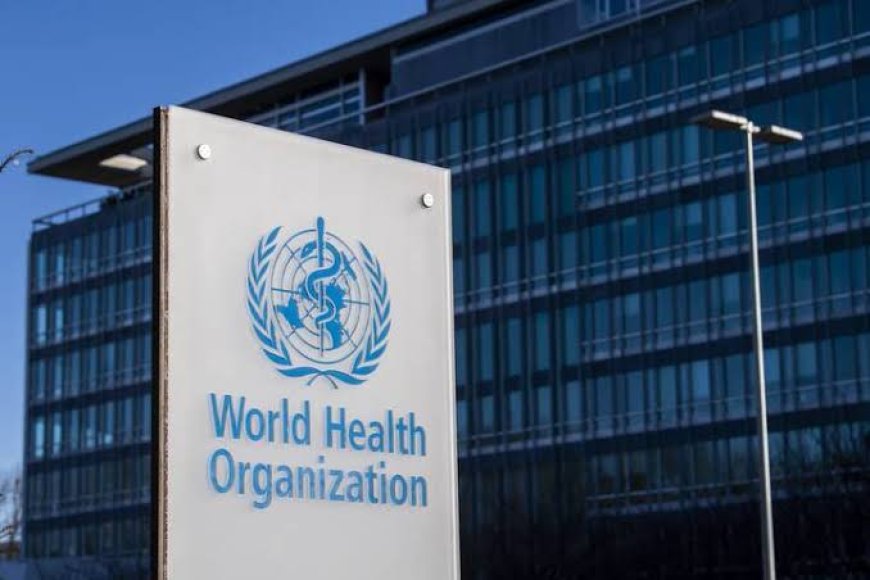Nigeria, 11 others hit by major cholera outbreaks, says WHO

The World Health Organisation has said Nigeria and 11 other countries reported major cholera outbreaks in 2024, each recording more than 10,000 suspected and confirmed cases.
According to data obtained from WHO on Saturday, the other countries are Bangladesh, Comoros, the Democratic Republic of the Congo, Ethiopia, Nigeria, Somalia, South Sudan, Sudan, the United Republic of Tanzania, Yemen, Zambia, and Zimbabwe.
In its latest update, WHO said the seventh cholera pandemic continued to expand in 2024, with a total of 560,823 cases and 6,028 deaths reported from 60 countries, territories, and areas – an increase from 45 countries in 2023.
The number of reported cases rose by five per cent, while deaths increased by 50 per cent. The overall case-fatality rate was 1.1 percent.
The burden remained concentrated in Africa, the Middle East, and Asia, which collectively accounted for 98 per cent of all reported cases. In 2024, 12 countries on two continents each reported 10,000 suspected and confirmed cases. The countries are Bangladesh, Comoros, Democratic Republic of the Congo, Ethiopia, Nigeria, Somalia, South Sudan, Sudan, United Republic of Tanzania, Yemen, Zambia, and Zimbabwe.
“This represents three more countries than in 2023, and five more than in 2022, reflecting the ongoing expansion of cholera transmission. Notably, seven of these countries had not reported outbreaks of such magnitude in the previous year: Comoros, Nigeria, South Sudan, Sudan, United Republic of Tanzania, Yemen, and Zambia. The outbreak was the first reported from Comoros in more than 15 years. Of the three countries that reported >10,000 cases in 2023 but not in 2024 (Haiti, Malawi, and Mozambique), only Malawi had a significant reduction, to <1000 cases, indicating that the devastating outbreak that began in 2022 is finally abating.
“Of the 12 countries worldwide that reported very large outbreaks (>10,000 cases), 10 were in the African Region. They included four countries with outbreaks continuing from 2023 (DRC, Ethiopia, Somalia, Zimbabwe) and six with new outbreaks (Comoros, Nigeria, South Sudan, Sudan, United Republic of Tanzania, Zambia). The resurgence of cholera in the Comoros archipelago, after more than 15 years without reported cases, underscores the persistent threat of global transmission of this disease and the continued need to invest in sustainable development and outbreak preparedness,” the global health body said.
Nigeria recorded 24,841 cases (12,366 male and 12,431 female) and 734 deaths, representing a case fatality rate of 3.0 per cent.
Many factors contributed to the surge in cholera outbreaks, including conflict, climate change, population displacement, and significant deficiencies in long-term development – particularly in water, sanitation, and hygiene, a key target of the United Nations 2030 Sustainable Development Goals.
WHO said the number of deaths, particularly those occurring in the community, from this preventable and treatable disease was of deep concern, as it revealed critical gaps in the delivery of life-saving care, and signalling the fragility of many health systems and persistent inequity in access to basic services.
In southern Africa, the surge that began in 2022 persisted into 2024, with Zambia (23,380 cases) and Zimbabwe (20,632 cases) reporting their highest counts in over a decade, even as decreases were observed in Mozambique (8,174), Malawi (554), and South Africa (13).
WHO stressed that the resurgence of cholera in Comoros, after more than 15 years without reported cases, underscores the persistent threat of global transmission and the urgent need for sustainable investment in outbreak preparedness.
It added that climate-related hazards, together with population growth and urbanisation, remain important drivers of cholera, warning that long-term investment in climate-resilient WASH infrastructure is essential to protect populations against cholera and other diarrhoeal diseases.

 admin
admin 


